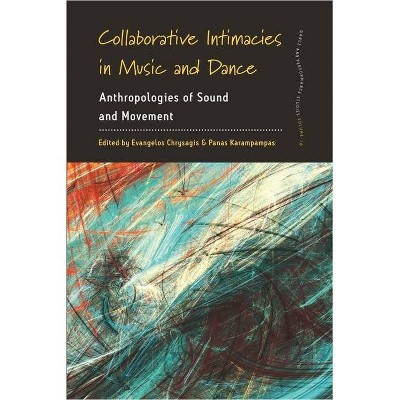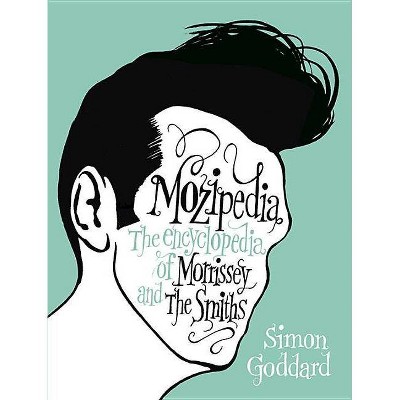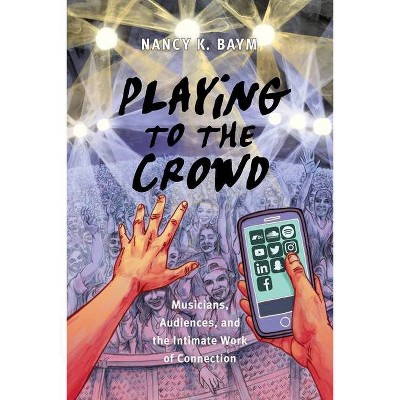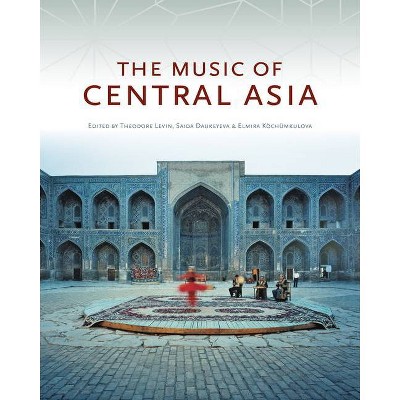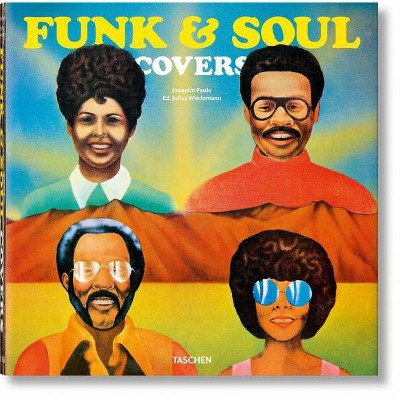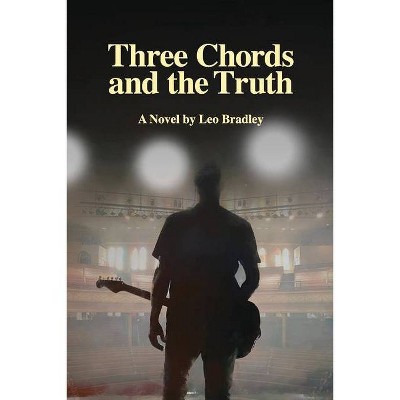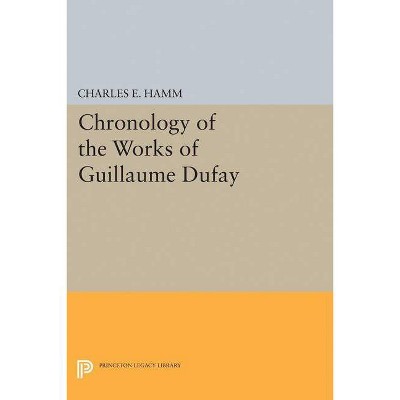Representing Australian Aboriginal Music and Dance 1930-1970 - by Amanda Harris (Hardcover)
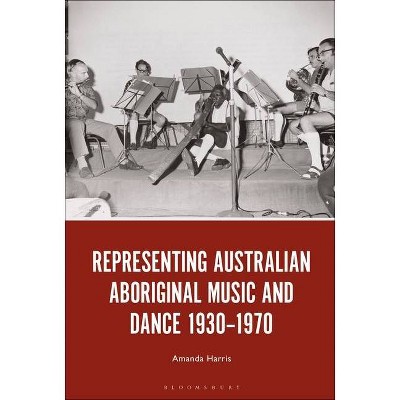
Similar Products
Products of same category from the store
AllProduct info
<p/><br></br><p><b> About the Book </b></p></br></br>A new Australian music history seeking to understand disruption and continuation of Aboriginal music and dance and its representation in non-Indigenous performances.<p/><br></br><p><b> Book Synopsis </b></p></br></br><b>Shortlisted for the 2021 Prime Minister's Literary Award for Australian History.</b><br/><i><br/></i><i>Representing Australian Aboriginal Music and Dance 1930-1970</i>offers a rethinking of recent Australian music history. Amanda Harris presents accounts of Aboriginal music and dance by Aboriginal performers on public stages. Harris also historicizes the practices of non-Indigenous art music composers evoking Aboriginal music in their works, placing this in the context of emerging cultural institutions and policy frameworks. Centralizing auditory worlds and audio-visual evidence, Harris shows the direct relationship between the limits on Aboriginal people's mobility and non-Indigenous representations of Aboriginal culture.<br/><br/>This book seeks to listen to Aboriginal accounts of disruption and continuation of Aboriginal cultural practices and features contributions from Aboriginal scholars Shannon Foster, Tiriki Onus and Nardi Simpson as personal interpretations of their family and community histories. Contextualizing recent music and dance practices in broader histories of policy, settler colonial structures, and postcolonizing efforts, the book offers a new lens on the development of Australian musical cultures.<p/><br></br><p><b> Review Quotes </b></p></br></br><br><i>Representing Australian Aboriginal Music and Dance</i>is an exciting and original book. Harris offers a richly textured and expansive narrative of Aboriginal and Aboriginal-inspired music and dance across the country, interwoven with the history and politics of Indigenous rights in the twentieth century, and underpinned by a deep knowledge of Australian musicology. Through meticulous research, she has revealed unknown story after story of performances in which Aboriginal people emerge as historical individuals and assertive agents of profound social and political change. From the powerful opening 'Prelude' contributed by D'harawal scholar Shannon Foster, about her grandfather, the activist and songman Tom Foster, Harris's dialogic engagement with Aboriginal voices is respectful and unforced, and drives the book's underlying message to recognise our shared humanity. <i>Representing Aboriginal Music and Dance</i>is essential reading for those interested in twentieth-century Aboriginal history or Indigenous performance studies, but it will resonate with all who seek out histories that inspire as well as inform us.<br/>Victoria K. Haskins, Director, Purai Global Indigenous History Centre, University of Newcastle, Australia, and author of Colonialism and Male Domestic Service across the Asia Pacific (Bloomsbury, 2020)<br><br>A most thoughtful, compelling study ... Harris writes with such empathy about all the diverse actors in these encounters.<br/>Stephen Jones Blog<br><br>Harris is a great storyteller and researcher. She eloquently tells the hidden stories behind Australia's historical events through the lens of Aboriginal music and dance. In addition, she reveals the complex relations between the settler Australians and the Aboriginal people... studies presented in this book are not only essential for those interested in Aboriginal performance studies but also for history enthusiasts and general readers who want to learn about Australian history in a more comprehensive way.<br/>Australian Historical Studies<br><p/><br></br><p><b> About the Author </b></p></br></br><b>Amanda Harris</b> is a research fellow at Sydney Conservatorium of Music, at the University of Syndey, Australia, and Director of the Sydney Unit of digital archive PARADISEC. Her research focuses on gender, music and cross-cultural Australian histories. She is editor of <i>Circulating Cultures: Exchanges of Australian Indigenous Music, Dance and Media</i> (2014) and co-editor of <i>Research, Records and Responsibility </i>(2015) and <i>Expeditionary Anthropology</i> (2018).
Price History
Price Archive shows prices from various stores, lets you see history and find the cheapest. There is no actual sale on the website. For all support, inquiry and suggestion messages communication@pricearchive.us


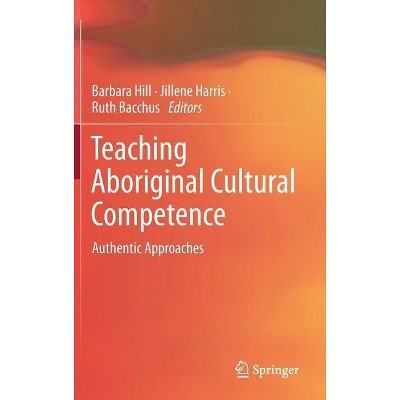

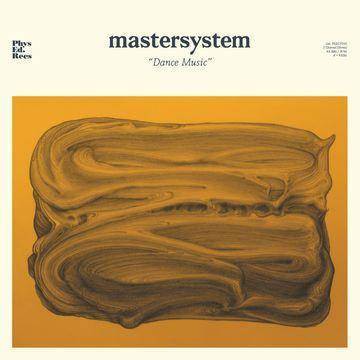
![Buried Country: An Anthology of Aboriginal Country Music [LP] - VINYL](https://pisces.bbystatic.com/image2/BestBuy_US/images/products/3444/34445215_sa.jpg)
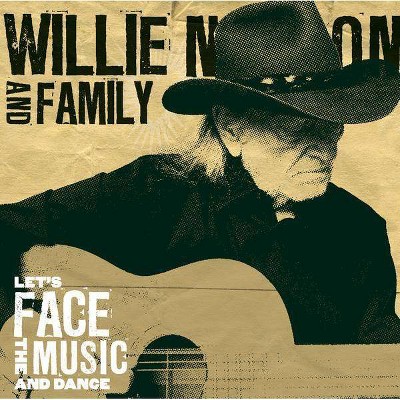
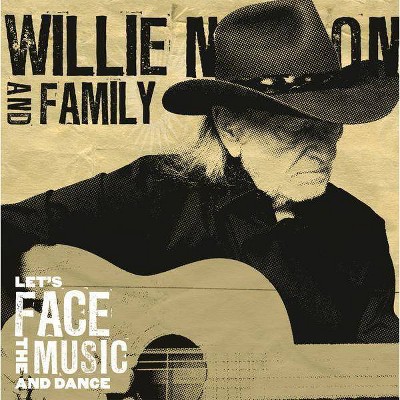
![Behind the Scenes, Vol. 3: Music and Dance [DVD]](https://pisces.bbystatic.com/image2/BestBuy_US/images/products/4890/4890531_so.jpg)
